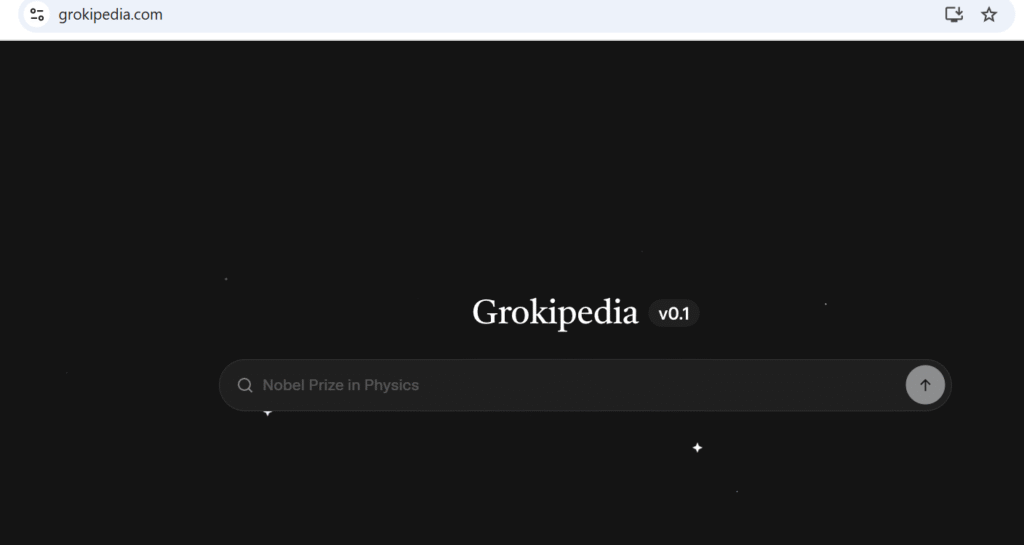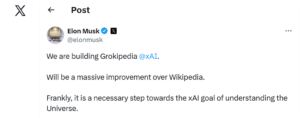
Grokipedia’s Rapid Growth
It didn’t just emerge; it exploded onto the digital landscape, setting new records and sparking widespread curiosity. The launch was accompanied by a flood of visitors and a deluge of articles, marking the platform as a formidable force in online knowledge sharing.
- Published over 885,000 articles within its first days—an unprecedented debut for any AI encyclopedia.
- Saw such heavy traffic that servers crashed, illustrating both the excitement and scale of public engagement.
- Supports eight languages at launch, making it instantly global.
- Branching out with projects like Grok Commons (media repository), Grokbooks (digital textbooks), and Groktionary (dictionary).
AI-Driven Approach
What sets it apart is its foundation—AI, not human editors, is in charge. All entries are algorithmically written, fact-checked, and maintained by Grok, the main AI agent of xAI. Users interact by suggesting corrections, but hands-on editing is off-limits, aiming for a streamlined and efficient process.
- Content is curated entirely by Grok AI, striving for speed and consistency.
- User input is limited to suggestions, not direct edits.
- Updates happen automatically, often at a pace unmatched by manual editorial models.
- Initial articles borrowed from Wikipedia’s open resources, but focus is shifting to original, AI-generated material.
Bias and Fact-Check Debate
Despite Musk’s pledge for neutrality, the debate over bias is already intense. Critics have flagged notable slants in certain articles, questioning whether algorithmic curation escapes the pitfalls of human editorial perspective—or simply substitutes one bias for another.
- Musk accuses Wikipedia of a “left bias” and frames Grokipedia as an impartial alternative.
- Some reviewers and editors have found right-leaning views in flagged entries.
- Grokipedia uses AI-powered fact-check badges and timestamps, but lacks Wikipedia’s transparent citation system.
- Wikipedia has responded with viral notes and banners highlighting the strength of “human-driven” community oversight.
Social Media Reactions
The launch and early content have fueled a wave of reactions and debate on social media. Elon Musk’s own posts amplified the buzz, while regular users and influencers flooded X (formerly Twitter) and Bluesky with screenshots, hot takes, comparisons, and memes.
- Elon Musk’s announcement on X: “Grokipedia.com version 0.1 is now live. Version 1.0 will be 10X better, but even at 0.1 it’s better than Wikipedia imo.”
- Bluesky and X users posted viral screenshots comparing Grokipedia and Wikipedia, highlighting notable and controversial entries.
- Tech news outlets like Engadget and The Verge covered trending reactions, sparking further discourse.
- Debates over bias, reliability, and future potential are trending on social platforms.

Comparative Table: Grokipedia vs Wikipedia
| Feature | Grokipedia | Wikipedia |
| Editorial Model | AI-generated articles | Volunteer contributors |
| Updates | Real-time, dynamic by AI | Manual, slower updates |
| Article Volume (launch) | ~885,000 | ~7 million |
| User Editing | Suggestions only | Direct editing allowed |
| Transparency | Fact-check badges | Citations, full edit history |
| Bias Handling | Claims less bias, debated | Community consensus, policies |
Early Reception and Future Impact
Its explosive debut signals not just a technological milestone, but an ongoing challenge to the future of public knowledge sharing. The controversies and conversations it sparks—from transparency to trust, speed to fairness—are likely to shape the evolution of both it and its traditional rivals.
- Has the potential to reshape how millions access and engage with knowledge online.
- Faces ongoing controversies and questions around reliability, neutrality, and transparency.
- Its long-term influence hinges on balancing technical progress with openness, accuracy, and editorial trust.
Also Check: Everything You Need to Know About Digital & Social Media Ads
References
-
Fox Business
-
Jagran Josh
-
Current Affairs Adda247
-
Indian Express
-
Forbes
-
Skywork AI Blog
-
Times of India
- Wired
- Elon Musk on X

Leave a Reply